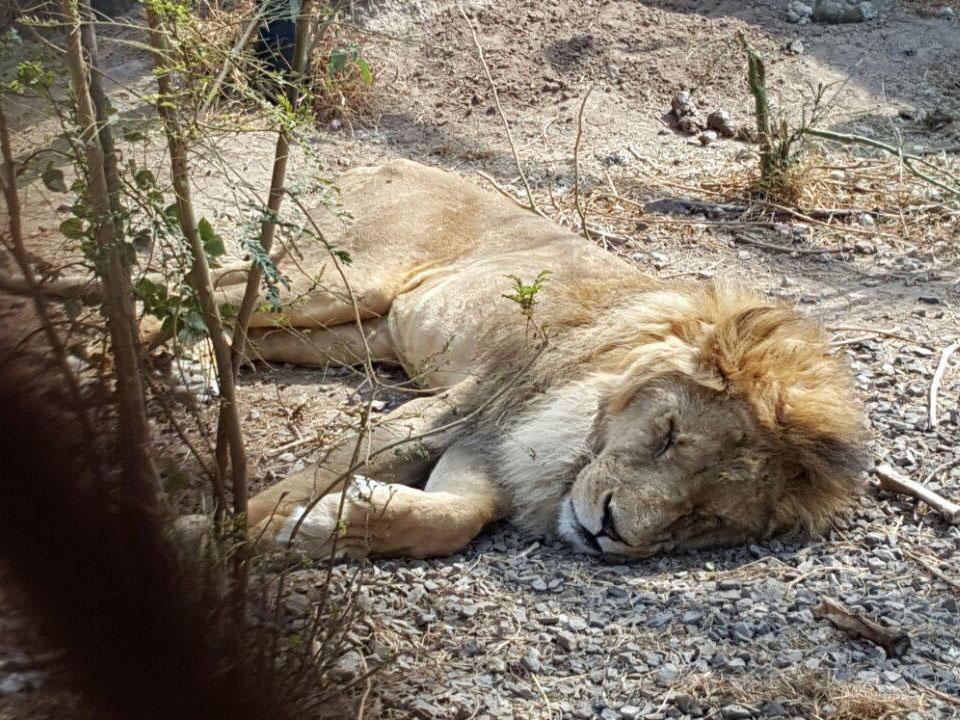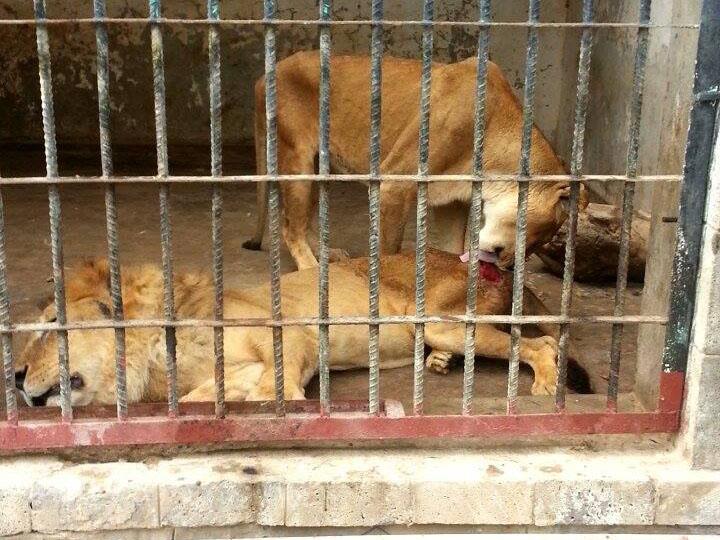Yemeni zoo animals are starving due to ongoing civil war
Campaigners urge the government to allow for the evacuation of animals from a zoo in Tiaz after 11 lions and six Arabian leopards reportedly starved to death

Your support helps us to tell the story
From reproductive rights to climate change to Big Tech, The Independent is on the ground when the story is developing. Whether it's investigating the financials of Elon Musk's pro-Trump PAC or producing our latest documentary, 'The A Word', which shines a light on the American women fighting for reproductive rights, we know how important it is to parse out the facts from the messaging.
At such a critical moment in US history, we need reporters on the ground. Your donation allows us to keep sending journalists to speak to both sides of the story.
The Independent is trusted by Americans across the entire political spectrum. And unlike many other quality news outlets, we choose not to lock Americans out of our reporting and analysis with paywalls. We believe quality journalism should be available to everyone, paid for by those who can afford it.
Your support makes all the difference.Animals at a zoo in Yemen are starving to death after the middle-eastern country’s government stopped paying its staff and abandoned the facility amid the escalating violence of the country's ongoing civil war.
The 265 creatures, including 28 Arabian leopards that are critically endangered in the wild, have recently been cared for by a rescue organisation called SOS Zoo and Bear Rescue, set up by Chantal Jonkergouw in February after animals began dying of starvation.
But Ms Jonkergouw, a Swedish national, told The Independent funds were running out and it would now “take a miracle” to get the animals to safety and prevent them from starving to death.
Although the organisation has managed to raise nearly $130,000 (£105,000) from public donations, she said keeping the animals alive costs around $4,000 (£3,241) a week, covering food and care and the modest salaries of a small staff of six.
But with funds down to just $10,000 (£8,103) at the end of last month, she was forced to make the heartbreaking decision to cut off the food supplies.

While local volunteers have tried to help out, food shortages in the region around the zoo have made this difficult in recent months. Ms Jonkergouw, who coordinates fundraising and other management activities from Sweden, said many of the animals are now showing signs of extreme weakness.
She told The Independent: “As the animals grow hungrier, the stronger ones might prey on the weaker ones. I think that most of them will lie down and die slowly."
Ms Jonkergouw added that many of the creatures have also displayed signs of severe zoochosis — a condition that often affects animals kept captive in artificial environments and is characterised by obsessive and repetitive behaviours.
Ms Jonkergouw is now calling on Yemen's government to facilitate an evacuation of the creatures.
But the southwestern city of Taiz, where the zoo is located, has been the scene of continual fighting in Yemen’s ongoing civil war after government forces were pushed out by rebel Houthis in April 2015.
The group occupy the area around the zoo, so even if Ms Jonkergouw's organisation were to be granted a government permit allowing the animals to be transferred, "the problem would be getting safe passage", and it would cost up to $500,000 (£405,166) to evacuate the zoo, with armed guards required.

Ms Jonkesgouw said there were “two offers on the table” to move the animals to safety, with the Princess Alia Foundation in Jordan and the Breeding Centre for Endangered Arabian Wildlife in the United Arab Emirates (UAE) both saying they’d take the animals.
But she added that due to the UAE support for Yemen's government, the Houthi rebels would be unlikely to support such a move.
She said: "The structures are there and the money is there to do all this, but not in Yemen. Plus the war has approached within 500 metres of the zoo, so with the recent Saudi bombings some of the shell fragments hit the zoo.
“My expectations are quite low, because the first hurdle is the government in Yemen, the second hurdle is the Houthis situation in the area, and the other hurdle of course is the financing of the whole operation.
“The first one, for Yemen to cooperate and give us a permit, is almost impossible. It will take a miracle. But we need to keep a hard line. At least we'll know that we tried everything.”
Join our commenting forum
Join thought-provoking conversations, follow other Independent readers and see their replies
Comments